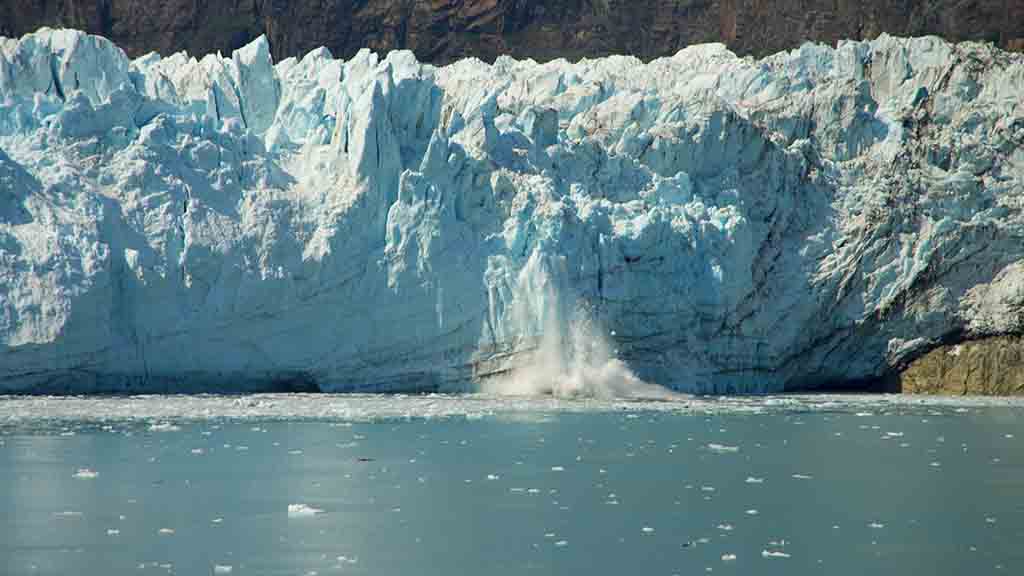Solar PV is now the most well established of all the green technologies. The cost of equipment is now highly affordable due to the economies of scale of mass production. Every home can benefit from a solar PV system, as every home uses electricity.

“Thunder may sound a warning, but it’s too late for the lightning” Anthony T. Hincks
Coronavirus will lead to a societal obsession with an existential threat. The risk of human extinction will saturate the news, movie themes, books, scientific research, social media, finance and everyday conversation.
Some of it will be hyperbole, but it is a matter which will resist subject fatigue because it draws upon that very basic animal instinct hard coded into the profundity of the human psyche: our survival instinct.

Initially, the focus will be on disease, viral epidemics and ‘foreign’ dangers which lurch out there ready to ‘attack’ us. But, very soon, we will recognise that most dangers are of our own making and this fear of ‘something else’ will morph into an introspective fear of ourselves and the general concern over existential threats we face which correlate with population growth and environmental neglect.
Climate change will dominate and will be front-and-centre of all politics and strategic decision-making not just at a state level. Everywhere from individual family choices to local councils to the boardrooms of multinationals – climate change is about to become the most salient bullet point on the agenda. For good reason. Epidemics are not the only exponential relationships out there.

Humans are good at understanding linear relationships: if I pedal twice as fast on my bike, I reach my destination twice as quickly.
Humans are also good at understanding non-linear relationships which are cyclical: day and night, the stars, the seasons, the tides, menstrual cycles… the Cycle of Life, even.
Humans are terrible at understanding exponential relationships: I fold a single piece of paper in half 4 times and it becomes quite a lot thicker than it was – it doubles in thickness on the first fold, then it quadruples as I fold the double-thickness again etc. But then there is a moment a cognitive inflexion where the human brain simply loses grasp, loses context, because there are few things in life one can directly relate the mathematics of an exponential relationship to objectively. Fold a piece of paper in half 45 times and the thickness of the stack is equivalent to the distance from the Earth’s surface to the Moon. We just don’t get it. We don’t comprehend it. But it is. It is the power of an exponent.
But what you don’t know are the limitations of the human brain to make these calculations effectively (as interpretations over exponential relationships will attest). Shifting sands is an unfortunate analogy – landslides will be normal occurrences as top soil becomes a scarce commodity.
Just like a virus pandemic, when you notice the exponential growth rate affecting society directly, it’s likely too late, you should have reacted earlier. So, when the effects of climate change become too blatant to ignore in everyday life, it’ll probably be too late as well. Trying to contain a climatic crisis when it’s already underway is not a strategy – exponential trends work like a runaway train… the words ‘horse’, ‘door’ and ‘bolted’ come to mind. Coronavirus should have taught us this, if nothing else.
“The coronavirus pandemic will alert the collective human mind to the nature of exponential trends and the existential threats that lurk within. This will give a kick up the backside for those procrastinating over the environmental agenda.”
The good news is the coronavirus pandemic will alert the collective human mind to the nature of exponential trends and the existential threats that lurk within. This will give a kick up the backside for those procrastinating over the environmental agenda. The bad news is we are already at the cusp of the inflexion point for environmental disaster. The next 50 years will literally be a race for survival of the species (many other species will unfortunately fall victim to extinction) and we will see this race hit full acceleration this decade. In this series of blogs, I will highlight some aggressive predictions (life is too short to be conservative) about how life will pan out over the next few years. I’m sure I’ll get some predictions wrong. I’m confident I’ll get some right. Here goes…

You already know it. You know it because we are at the inflexion point where the sand is shifting beneath your feet. You feel it don’t you? But you’ve chosen to ignore it because you’ve made a subliminal mental calculation about the rate of change of circumstances around you. But what you don’t know are the limitations of the human brain to make these calculations effectively (as interpretations over exponential relationships will attest). Shifting sands is an unfortunate analogy – landslides will be normal occurrences as top soil becomes a scarce commodity.
Speaking of scarcity the next decade will usher in a brand new commodity. Ironically, it is a thing we have an abundance of: water. But, as I have written and quoted myself before:
“World’s population lives “downstream from someone else” and are thus dependent on “foreign” water supplies. There is surprisingly little coverage on all the geopolitical consequences in say, Egypt, were Sudan to significantly alter the Nile water supply from upstream or to, say, Syria, Iraq, Iran should Turkey decide to damn the Euphrates or tinker with the Tigris. We are in uncharted territory because water has never been so scarce, and it is getting scarcer.”
Geopolitical tensions will arise due to “water aggression”. Wars may even be started – all for the sake of a substance which covers 70% of the planet’s surface and is growing in supply. Weird, huh?
As water levels rise, by logical default, the land area decreases and at a time when population is increasing. See the problem here?

Coastal land is gobbled up by the water near low elevation coastal zones (LECZ) – unfortunately these are the landmasses which have the highest population densities and, where there are no cities, the most fertile soils. Expect to hear of floods so devastating that it will make the last 2 decades look benign. Prepare to see cities under water and entire townships washed away. Prepare for “food supply shocks” creating localised inflation spikes and “freak famines”.
Asia will be the worst affected by water – China especially. The world’s most populated country will go on to declare that 75% of its land is unfit for crops due to devastating top soil erosion and toxicity from rampant acceleration of its industrialisation. Attempts to contain desert sprawl will fail. The Chinese will put pressure on their neighbours (Russia and Mongolia) to feed them. They will also expand their influence in Africa – which will result in unrest and rumours of wide scale exploitation (of all living things including people).
“The world’s most populated country will go on to declare that 75% of its land is unfit for crops due to devastating top soil erosion and toxicity from rampant acceleration of its industrialisation”

Fairly soon, you will begin to notice subtle changes in your everyday life – for example insurance costs. When the Financial Times writes an article entitled: Climate Change: can the insurance industry afford the rising flood risk? it’s time to wake up and smell the sewage. If something is becoming a multi-billion dollar business which financial companies are investing hard cash into then it is time to start believing: we are at a climatic inflexion point.
China’s flooding will be the least of their problems. As the life expectancy increases they will have to grapple with the fallacy of ignoring a phallic shaped population pyramid. Cancer rates which are attributable to pollution will go through the roof in Asia, especially in China (which will fudge the figures as it always does). Annual deaths from respiratory conditions due to air pollution will be 1,000 times greater than the number of deaths from all the viruses (including coronavirus) put together. You think this is a joke? C’mon, wake up and smell the smog; start putting things into an objective perspective.
Africa’s great deserts will expand and their tree population will diminish, as will South America’s. Emboldened by industrialisation pressure from both China and The West – some of the most popular species in Africa will reach “effective extinction” – kept alive only in unnatural environments where they will cease to flourish naturally without human intervention.
Australia, California, Brazil and other places will see their seasons lurch from extraordinary flooding to fires so vast they start to effect weather patterns all by themselves on a macro scale across the planet. Skin cancer rates will spike and show worrying signs of taking hold even in Africa and among skin or colour.
“Europe and North America will see climate change affecting them too. Crops in the southern regions will fail due to extraordinarily arid weather and biblical flooding.”
Europe and North America will see climate change affecting them too. Crops in the southern regions will fail due to extraordinarily arid weather and biblical flooding. New parasites will appear seemingly out of nowhere. Mediterranean tourism will face difficulties due to extraordinary heat and… malaria. You will need shots for things like Yellow Fever when travelling to Southern Europe due to climate change. The British will have to start getting used to hurricanes and drought.
If we accept all the bad things about climate change we must also embrace some of the ‘good’ things that come with it. This is not an attempt to say that climate change is good. The bad things outweigh the good by a million to one. But if you, dear reader, do accept the good things then, when you reverse-engineer your acceptance of the ‘good’ things, I will have succeeded in shocking you into understanding that the threat of climate change is real. Here we go…

Russia will see many benefits of climate change. The most important ones being mercantilism and militarism. Russia has been dealt a hard blow with its geographic situation. Huge areas of land with a gargantuan coastline in the north but no warm ports – why do you think Crimea is so important to them? Once the icecaps have melted though, Russia’s previously frozen ports which were impassable for half the year, will be open for business all year round. Russia will become a trading nation, as will Greenland! It will also empower Russia’s navy, which will expand and begin exerting it’s authority in the northern seas especially around Britain.
Russia and Mongolia will become agricultural exporters (especially to China) as global warming creates temperate climates and longer growing seasons in regions of their countries more used to frozen tundra and harsh winters.
The melting North Pole will also reduce journey times for the shipping routes. Most notably, a ship will be able to cut its journey in half from Rotterdam to Seattle or Osaka by simply sailing over the top of the North Pole. Russia’s icebreaker shipping industry will thrive as more trading firms seek the Arctic Ocean as a viable shipping route.

The British will see a booming tourism industry not only because of the decimated currency but also because the climate will turn more ‘tropical’. Palm trees on the southern coast will be commonplace. Wine from Kent, Oranges from Essex, Giant Shrimps from Cornwall will appear on your supermarket shelves by the end of the decade. Bananas will come from France.
Although indigenous species will come under threat, we will see some fascinating new species. While Cornwall, Devon and Wales will become the new trendy surfer spots of Europe, shark attacks will rise as Black Tips, White Tips, Hammerheads and, the deadly, Tiger sharks start venturing northward. Travel companies (RyanAir, EasyJet, ClubMed) which have plundered the North European market for holiday seekers going south will have to adjust or (more likely) run into financial difficulties. In the past, sea-side towns in the UK have fallen into disrepair and deprivation as cheap flights to Spain have lured holiday-makers abroad. Investments in sea-side properties (which are elevated and not prone to flooding/hurricanes) in the UK will be a good long term investment.
It should be noted, with the abolition of fossil-fuel transport the gulf in air quality between inner cities and the countryside will diminish. The city will be quite a clean place to live.
Manufacturers are already ploughing all their R&D into electric cars and selling petrol cars at price increases which do not correspond to the innovative advance. But the game will be up. Electric car sales will soar as the auto sector embarks on a straight-out race to the market. Not all will survive. Tesla will be bought by one of the giants in a leveraged buy-out, placing Elon Musk in the top 10 richest people in the world. The Germans will lead the way in commercialising electric cars with the Japanese leading the way with plug-in hybrids. Look out for a revolution when cars like the BMW i4 and the Audi E-Tron hit the market.
How we treat energy consumption will radicalise. New companies will overtake Tesla and Dyson in engineering innovation for retail consumption. You will never have to replace or repair your roof. Companies will manufacture “roof tiles” which fit together to form a massive solar panel on your roof. They will take some or all of the share of electricity generated but will be incentivised to replace any feature which malfunctions. Homes will have battery packs to store electricity and have intelligent systems which will take advantage of negative electricity prices (it’s already here).

The grid itself will transform. Communities will begin sharing and counterbalancing electricity between themselves in micro grids, independent from large utility companies. Again… this is not a prediction, it’s already here, the prediction is that it will be endorsed by governments and become mainstream. Entire buildings will be constructed from solar-power glass, sidewalks and patios will be decked with solar powered paving. Again, this is not a prediction, it’s already here. But it will become mainstream (and Onyx Solar will be bought out by a huge engineering firm in Asia).

Perhaps the most important thing is that awareness over environmental issues and climate change will be far more acute in this decade than at any point in the past. This truly is a good thing. Green parties will begin to acquire significant voting share and major political parties will either have to embrace some of their policies or form coalitions.
“I want you to act as if the house is on fire, because it is.” – Greta Thunberg
The ‘Environmental Secretary’ will become one of the most important posts in government. EU and UN environmental bodies will gain huge power and environmental sanctions will come to fore. This will increase global tensions especially between the EU, US and China.
Greta Thunberg will pick up numerous awards and be honoured by the Nobel Prize group even though there is no award for environmentalism. As she becomes ‘old enough to attack’, politically, she will distance herself from the glare of the media and go on to study and research environmental science and its impact on humanity.
But we will all be studying and researching this far more in the future. The whole of human society and our attitude towards existential threats (especially environmental) will change dramatically in the next 10 years.
Author Details: This article as been written by our friend ‘TIPSTER’ (The International Perspective), who blends his unique international knowledge with history and economics to provide a remarkable insight into our near future.
Completely Green Limited is authorised and regulated by the Financial Conduct Authority. Firm Reference number – 790525. We are a broker and not a lender. If you are not happy with the service you have received, you have the right to refer your complaint to the Financial Ombudsman Service.
Please note: Whilst every effort has been made to ensure the accuracy of the used vehicle information and images on this website, some errors may occur. It is important that you do not rely solely on this information, prices or images, and check with us any items that may affect your decision to purchase a vehicle. For an example monthly price, please use the finance calculator on each listing to retrieve a quotation. Representative Hire Purchase Example: Total Deposit: £2000 and Agreement Duration: 48 Months. Representative Personal Contract Purchase Example: Total Deposit: £2000 and Agreement Duration: 48 Months and 8000 miles pa. Representative Personal Contract Hire Example: Total Deposit: 12 months initial rental and 5000 miles pa, and Agreement Duration: 48 Months and Admin Fee: £299. Risk based variable lending rates apply with rates starting from 6.9% APR.